From farm to lunchroom table: These students are doing more than just growing lettuce
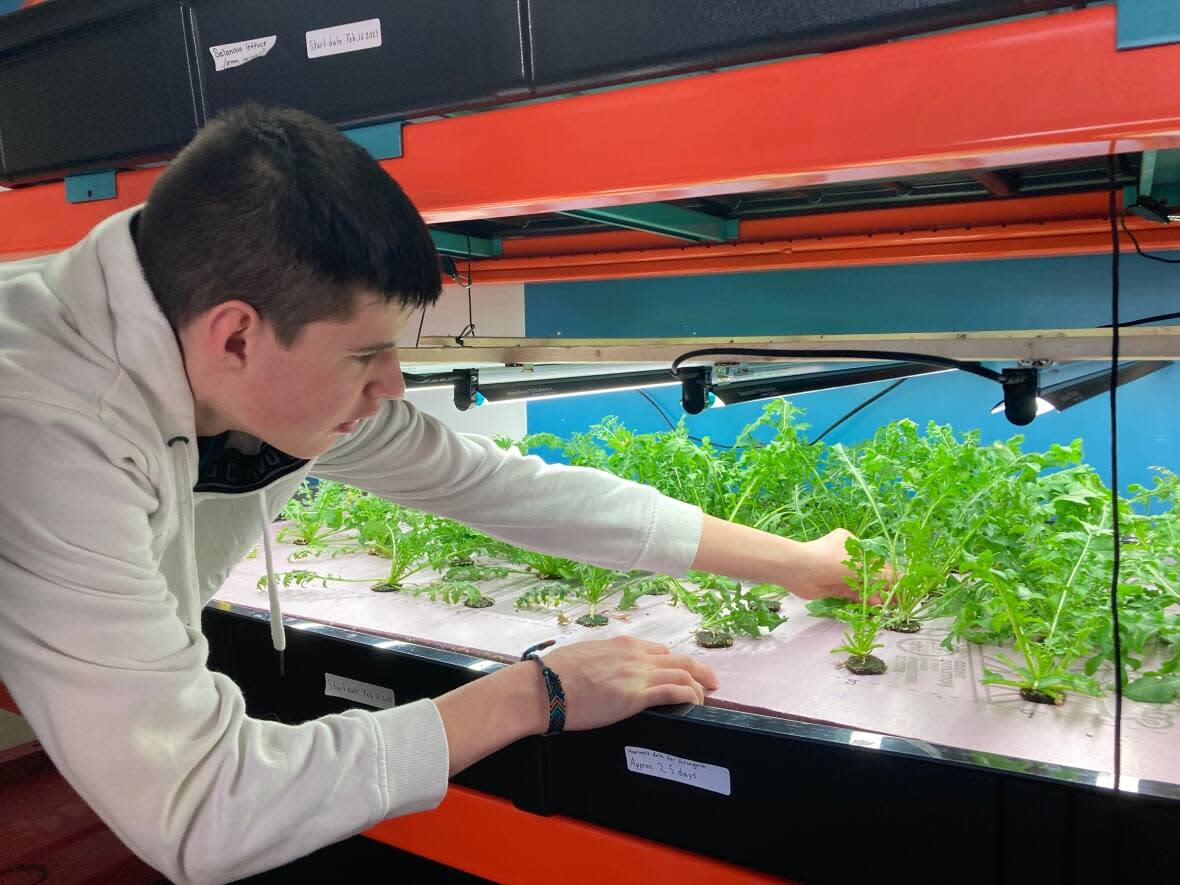
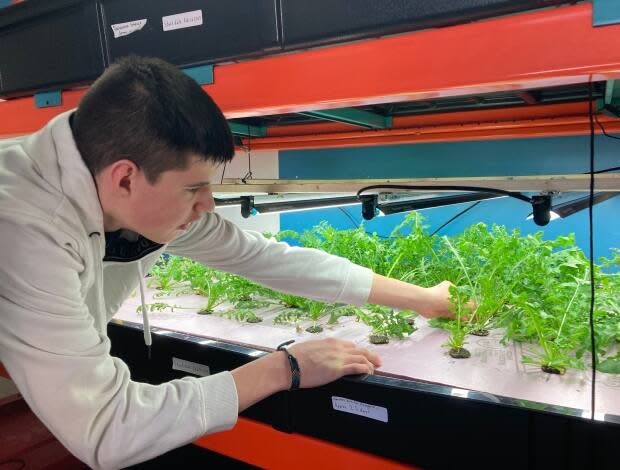
For a group of New Brunswick high school students, a project that started with growing lettuce has sprung into a much bigger conversation about food insecurity and sustainable farming.
For the past couple of months, Harrison Trimble High School students in Moncton have been tending to three vertical farms located throughout the school.
Vertical farming — also known as hydroponic farming — uses water, nutrients and artificial lighting to help plants develop. Widely considered a solution to food insecurity, the technique does not depend on the weather. Vertical farms can be set up almost anywhere and yield produce year round.
So far, students have been growing a variety of produce, including romaine, arugula and a bushy type of lettuce called Salanova that thrives in hydroponic setups. The students hope to soon harvest tomatoes and cilantro.
While students are learning a variety of skills through farming, caring for the community remains at its core. Students who recently harvested lettuce are sharing it with their peers through the school lunch program.
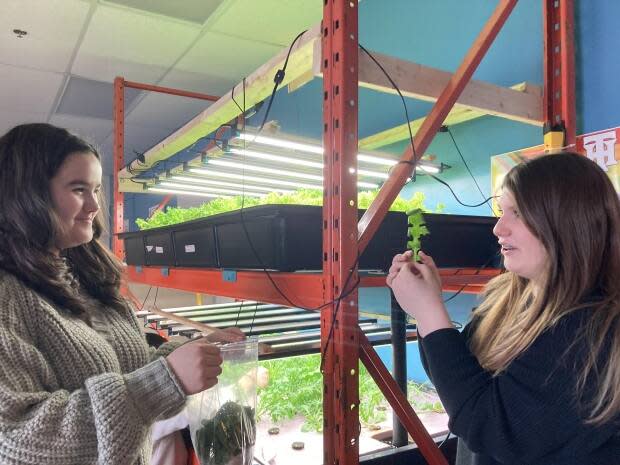
"Even if for us it's a small thing — we just planted this and grew that — to someone else, it makes them better," said Grade 11 student Chloe Alain.
"For someone who doesn't have lunch today, they're having that sandwich with the stuff we grew, that we made."
Grade 10 Mackenzie Morrison, who through the school week logs the amount of nutrients the plants are taking in and measures how quickly their leaves are growing, said she is learning other lessons too.
"Being one person it seems hard to make a big change," she said. "This experience … shows that every little part a person plays, it can affect a big community of people."
'The passion of the students is unreal'
Mark Merhebi, an educator with the Anglophone East School District in New Brunswick, has set up vertical farms in three schools in his region. Harrison Trimble is the most recent.
"The passion of the students is unreal. That part is the fire. That's what keeps you going," he said.
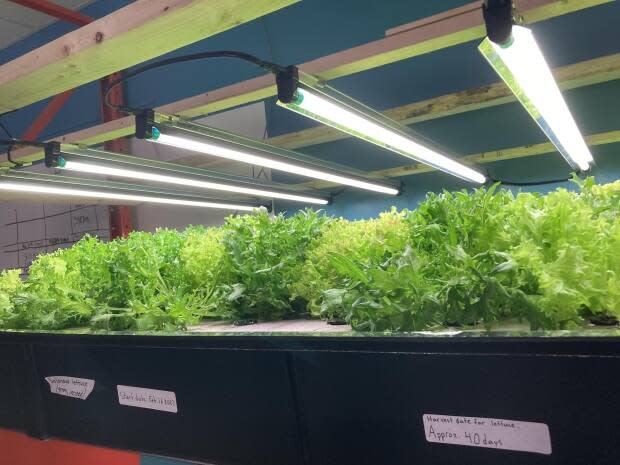
"Developing these farms is more than academic. We're producing, we're creating. We're learning by doing."
The "doing" at Harrison Trimble involves setting up and maintaining the farms in structures that are about two metres high, and which resemble the industrial shelving from a big box store.
Large plastic trays house dozens of leafy plants while rows of powerful artificial lights shine down on them. Nutrients are added to an irrigation system that feeds the plant roots.
"Some students are into the designing aspect and the labelling and presentation of it. Every student was able to contribute on a very tangible and realistic level," said teacher Nick Schock, whose students in the Skills for Success program built the farms. The program is designed to prepare students to work in the skills-based economy.
"There's a sense of responsibility and ownership. It's amazing, it's really cool," he added.
From table to tacos
Alain is also developing an instruction manual to help other people build their own farms, and credits the program with helping her to connect with her peers.
"Getting to know people better and how they work versus how I work," she said. "Being able to share what we're doing with other people like teachers, and just giving. It's very uplifting."
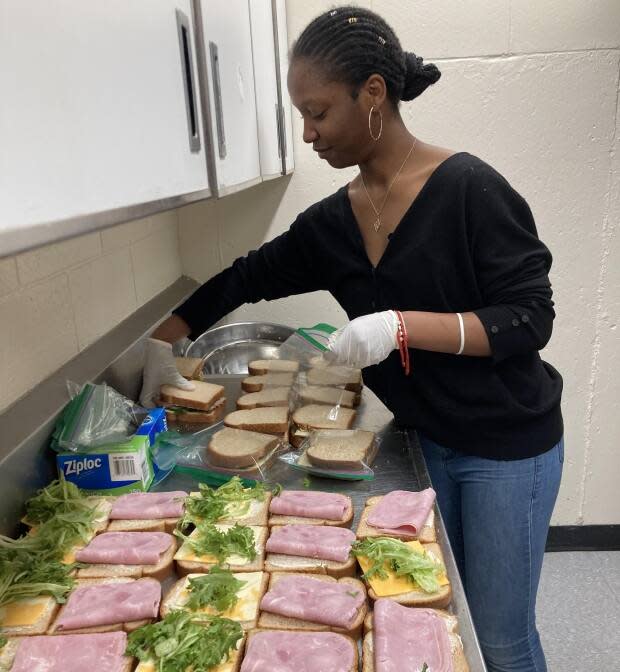
The bags of freshly picked Salanova lettuce have also found their way to teacher Kimberley Sinclair's prep kitchen. She teaches culinary arts to Grade 11 and Grade 12 students, and is using the Salanova to make tacos.
She says using the produce helps her students to connect the dots between where food comes from and how it can be used.
LISTEN | Meet students who are growing vegetables to help others in need:
"I see them every day producing their own product with the stuff we buy in the store," she said. "But I think it gives a little more of a connection when they see other students have grown this."
The vertical farm project is also being used to teach students about the plants used in Indigenous communities. One of the farms is growing sage, sweetgrass and tobacco.
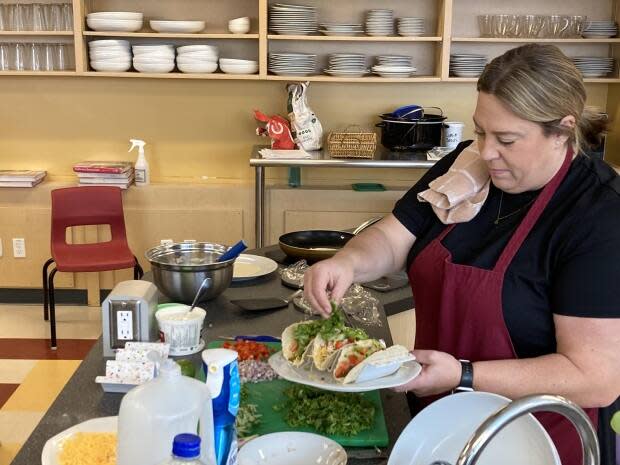
Indigenous elders provided the school with seeds, so students can learn about their traditions.
"The idea behind it is to show an understanding of what the herbs are for," says Merhebi. "We've been able to connect with some of our Indigenous elders and some of our Indigenous educational support staff that have been able to help the students with what they're used for and what the offerings mean."
Once the plants are ready to harvest, Merhebi says they plan to present them to Indigenous elders as an offering.


